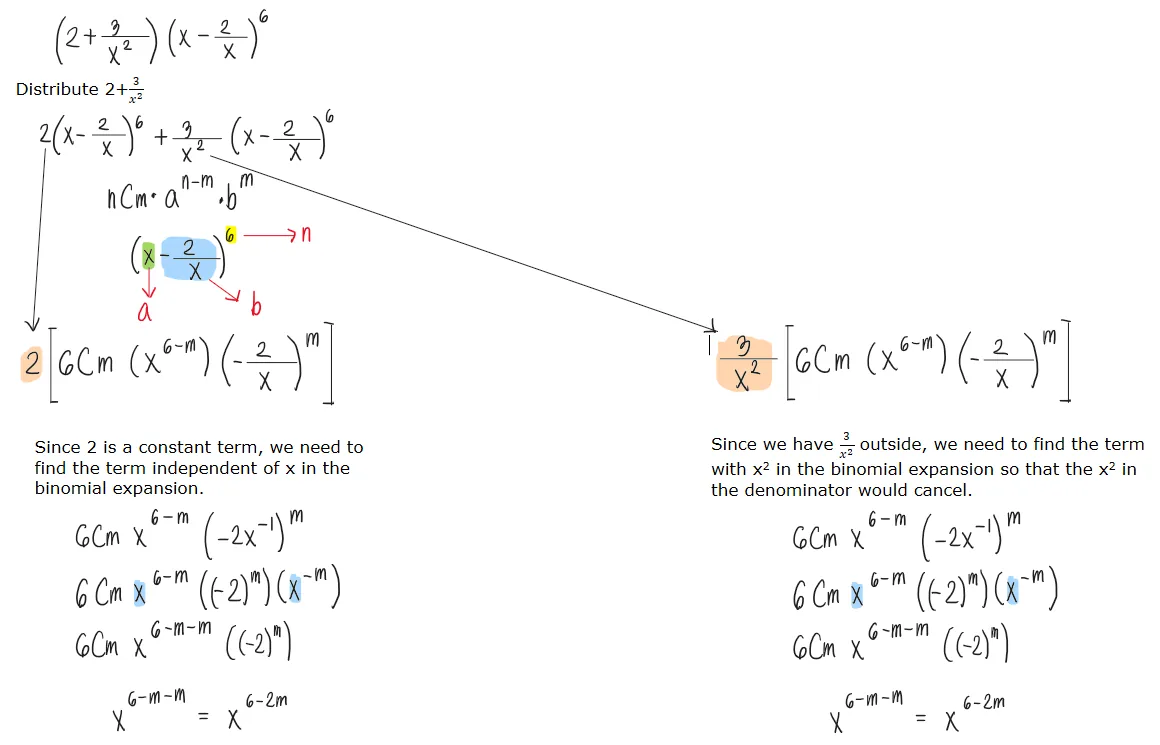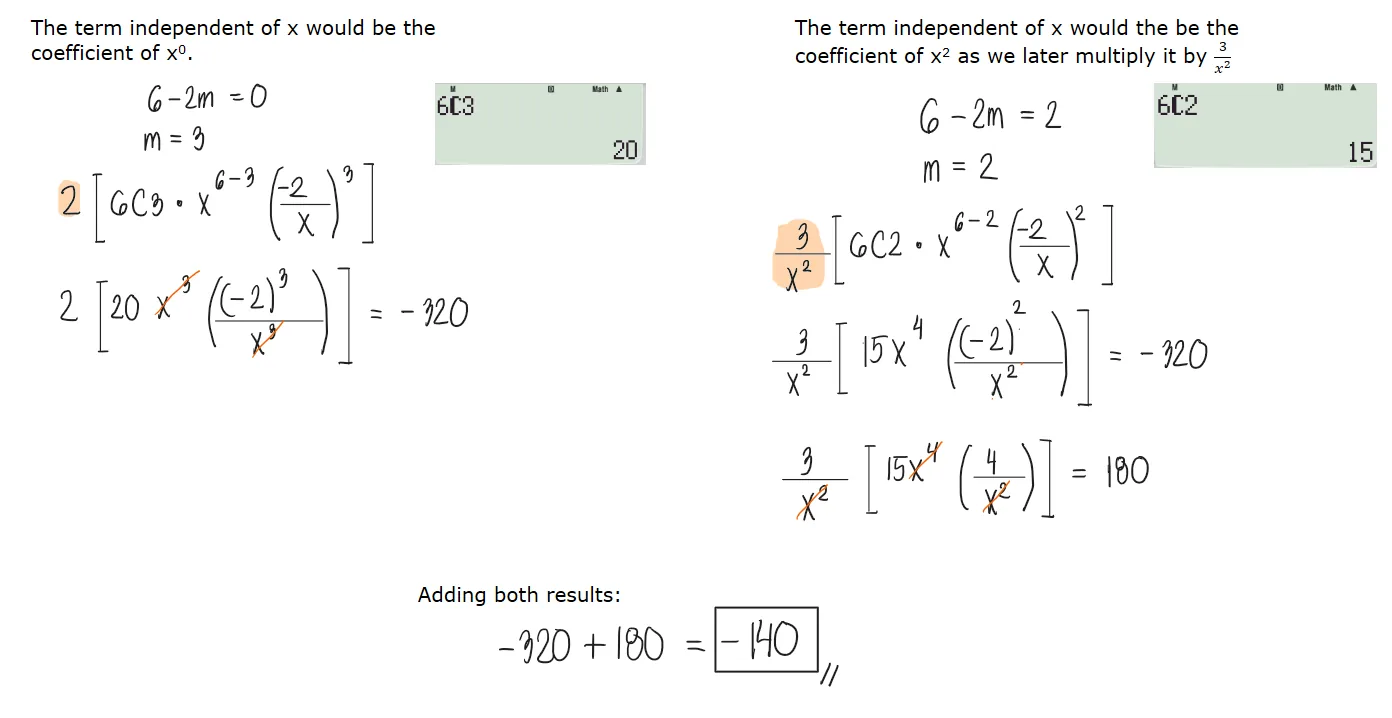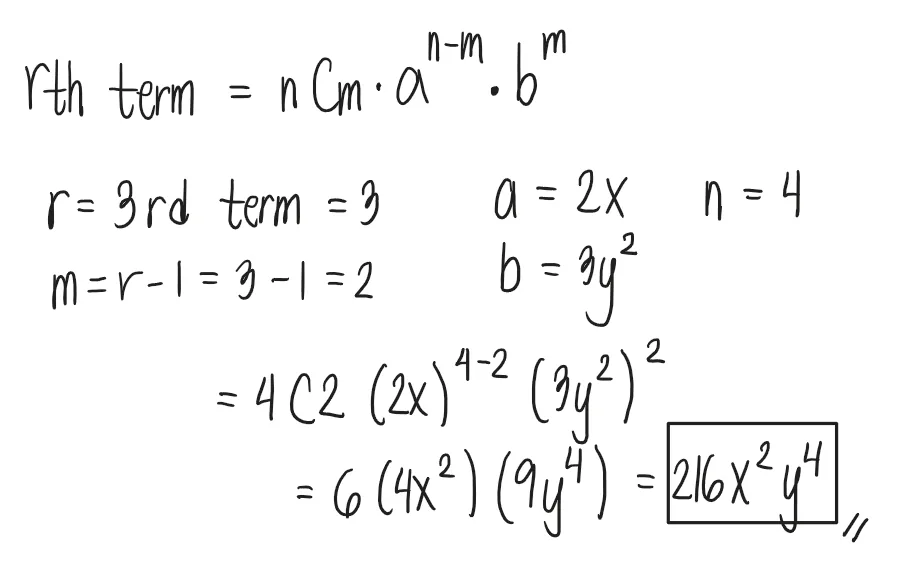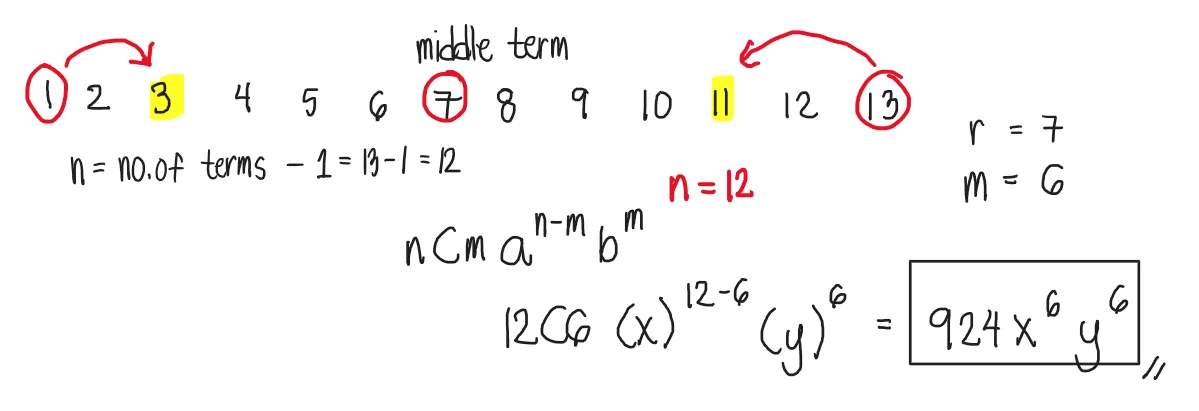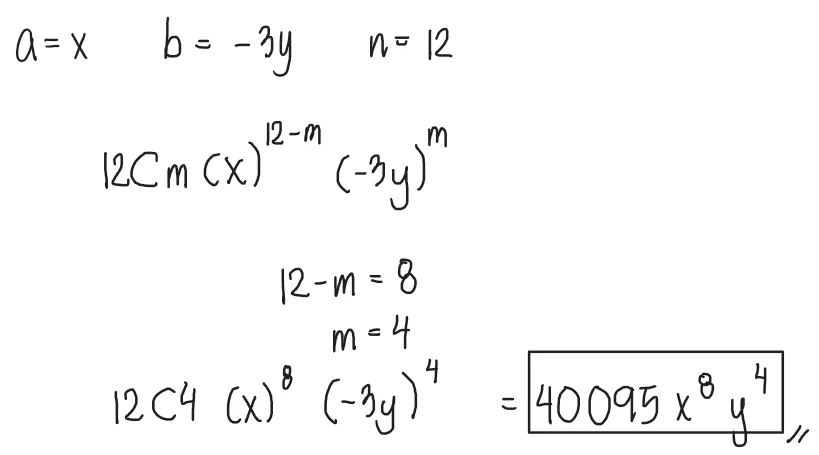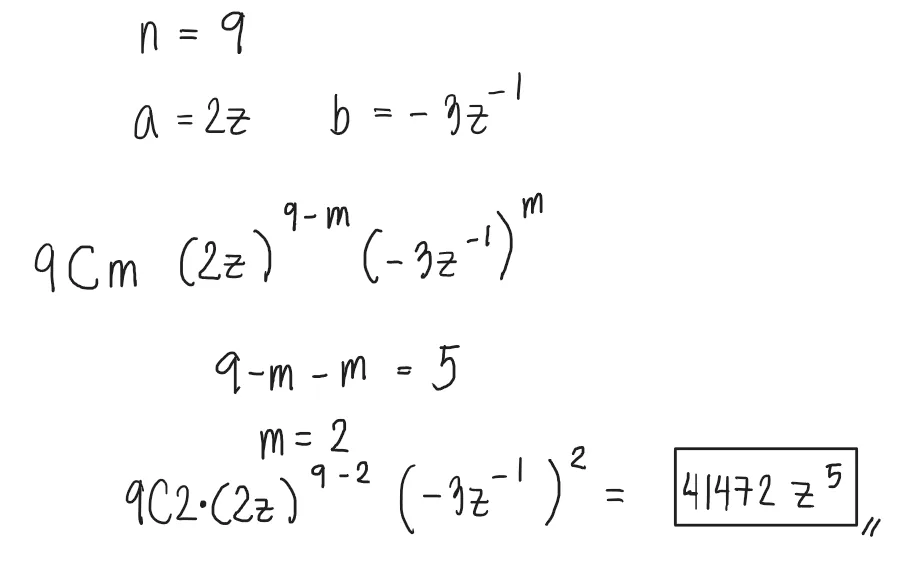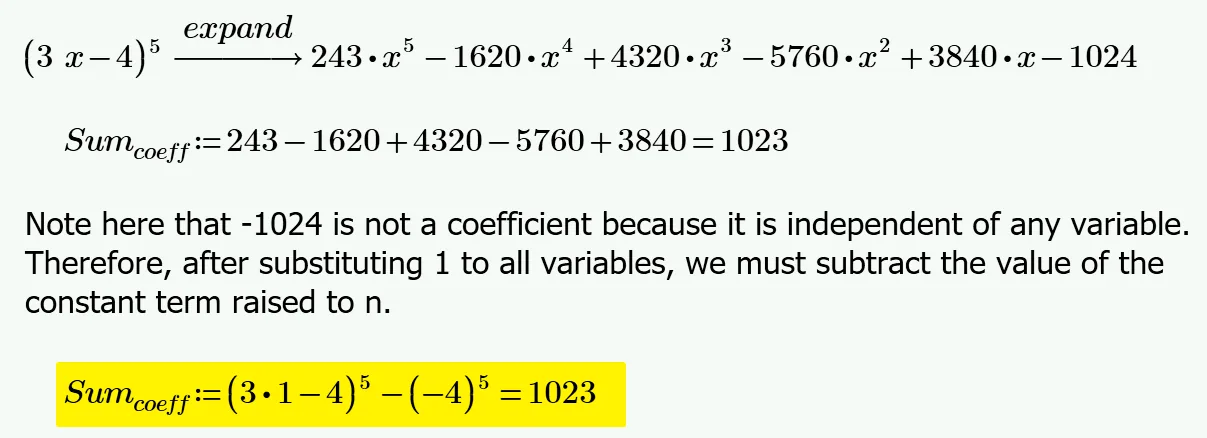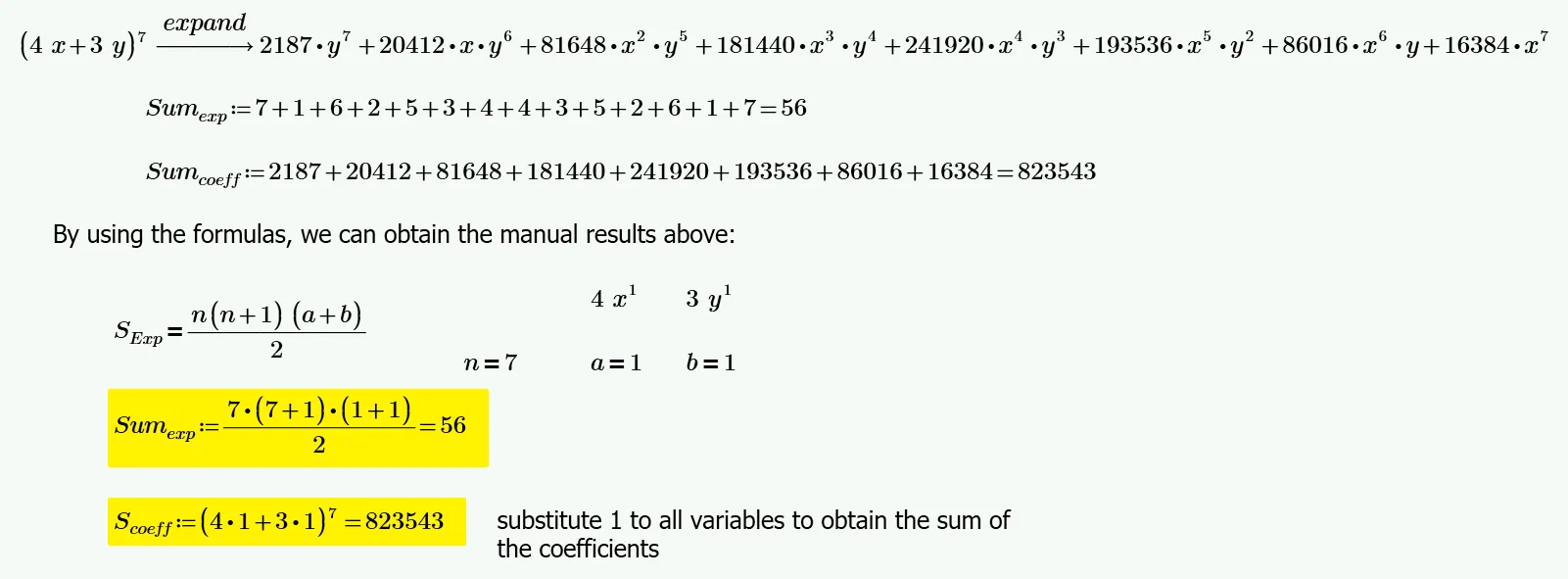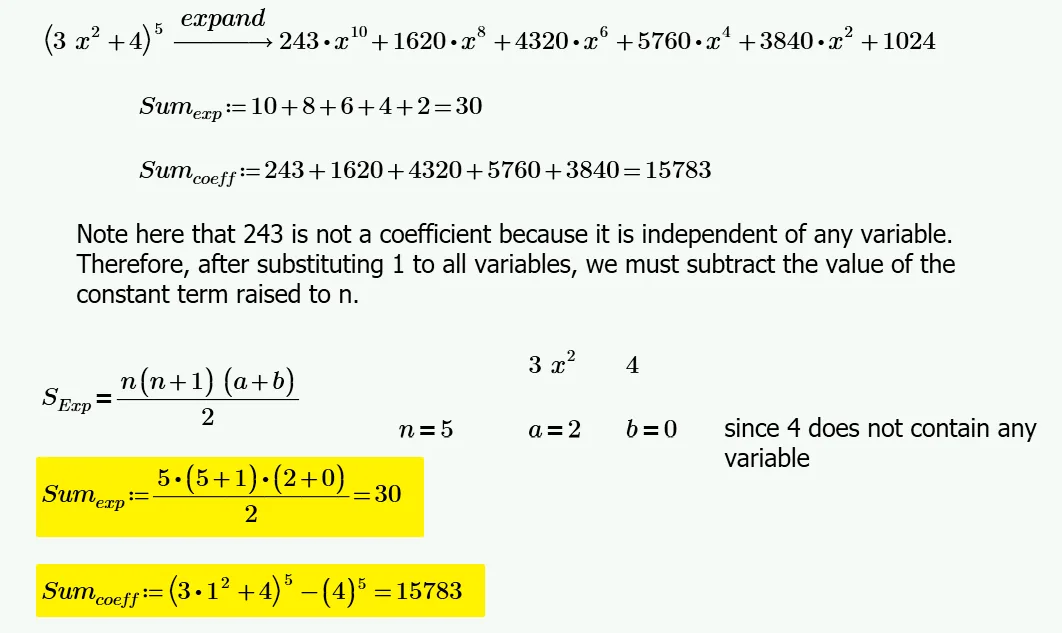Polynomials
A polynomial is an algebraic expression involving variables raised to non-negative integer exponents, combined using addition, subtraction, or multiplication.
General Form of a Polynomial:
Where:
- $a_0, a_1, \dots, a_n$ are real coefficients
- $n$ is the degree of the polynomial
- $a_n \ne 0$
Key Concepts:
- Degree: Highest exponent of the variable
- Leading Coefficient: Coefficient of the highest-degree term
- Roots / Zeros: Values of $x$ that make $P(x) = 0$
- Factor Theorem: If $P(c) = 0$, then $(x - c)$ is a factor of $P(x)$
- Synthetic Division: Shortcut for dividing polynomials by linear factors
Binomial Expansion
The Binomial Theorem gives a formula for expanding powers of a binomial:
Where $\displaystyle \binom{n}{k}$ is the binomial coefficient, calculated as:
Pascal's Triangle:
Binomial coefficients form a pattern known as Pascal's Triangle:
Each row corresponds to the coefficients of $(a + b)^n$ for $n = 0, 1, 2, \dots$
Note that the number of terms in the expansion (u+v)n is n+1. The exponent of u decreases from n to zero while that of v increases from 0 to n. Additionally, the coefficient of the terms equidistant from the extremes are equal.
Additional Binomial Expansion Formulas
Sum of the coefficients (substitute 1 for all variables):
For $(px+qy)^n$:
For $(px+k)^n$ where $k$ is constant:
Sum of the exponents in $(u^a+v^b)^n$:
rth term:
Useful in Engineering Applications:
- Stress-strain modeling using polynomial fits
- Control systems using polynomial transfer functions
- Signal and systems analysis (filter design)
- Binomial expansion in series approximations (e.g., Taylor series)
Understanding polynomials is essential not only in pure math but also in approximating curves, solving real-world system equations, and modeling engineering phenomena.
Special Products
Special products are algebraic expressions that follow predictable patterns when expanded. Recognizing these patterns makes factoring and simplification faster and easier.
1. Square of a Binomial
(a + b)2 and (a − b)2:
Use these identities to quickly expand or factor expressions that involve squared binomials.
2. Product of a Sum and Difference
(a + b)(a − b):
This results in a difference of squares. Useful for simplifying expressions or solving equations.
3. Cube of a Binomial
(a + b)3 and (a − b)3:
These help expand cubic binomials without multiplying step by step.
4. Sum and Difference of Cubes
These identities are used when factoring expressions with cubic terms.
5. Perfect Square Trinomials
Recognize expressions of the form:
Useful in completing the square or solving quadratic equations.
Mastering these special products allows you to reverse the process during factoring and apply them in higher math, engineering equations, and simplifications in calculus.




















